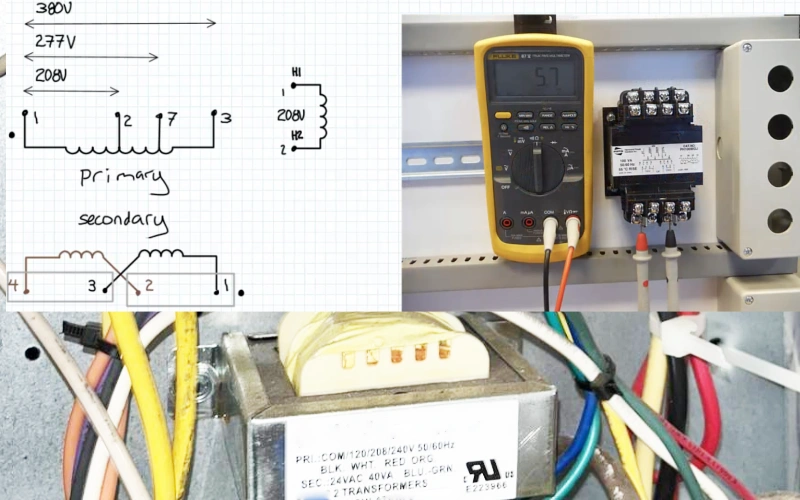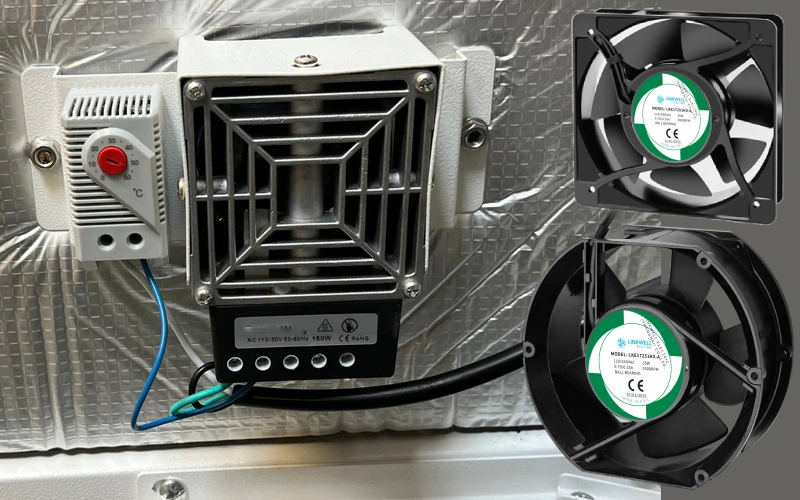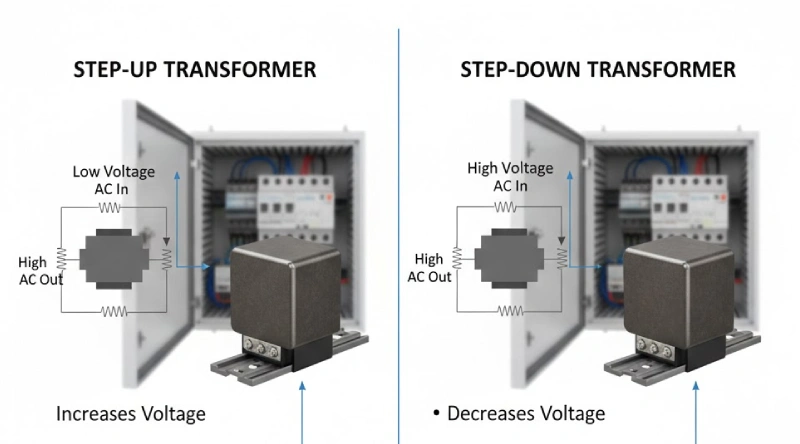Choosing the right junction box material, plastic or metal, is a fundamental decision in any electrical installation. Both options offer distinct characteristics that cater to various applications and environments. Understanding the differences in their durability, conductivity, corrosion resistance, cost, and ease of installation is crucial for ensuring safety, compliance, and the long-term reliability of your electrical system.
This blog post will delve into a comprehensive comparison of plastic and metal junction boxes, highlighting their key differences across several critical aspects. By examining these distinctions, you can make an informed decision that aligns with the specific requirements of your project, whether it’s a residential renovation, a commercial build-out, or an industrial application.
What Is Plastic Junction Box
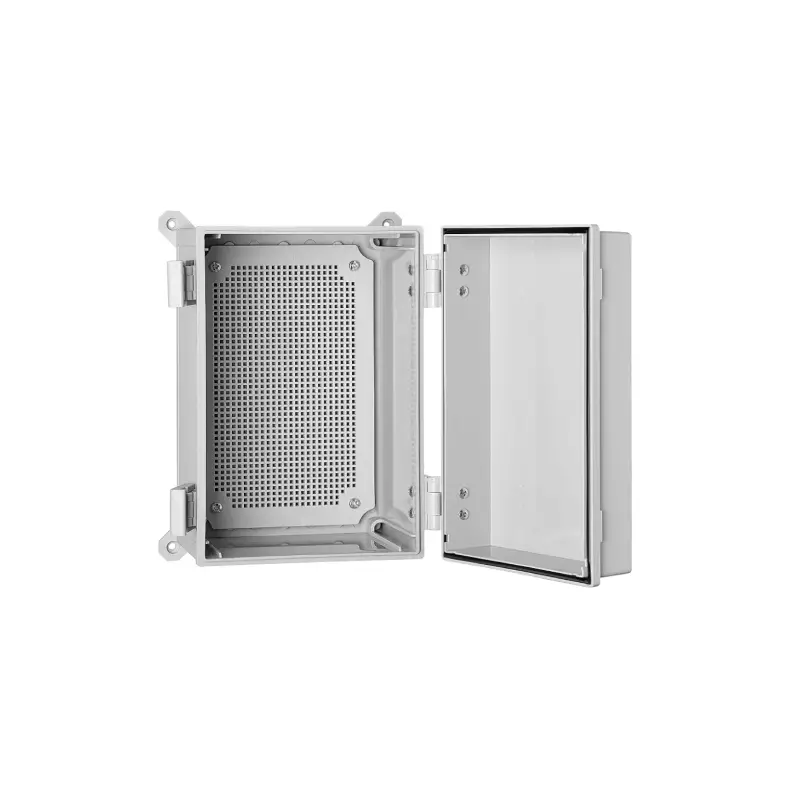
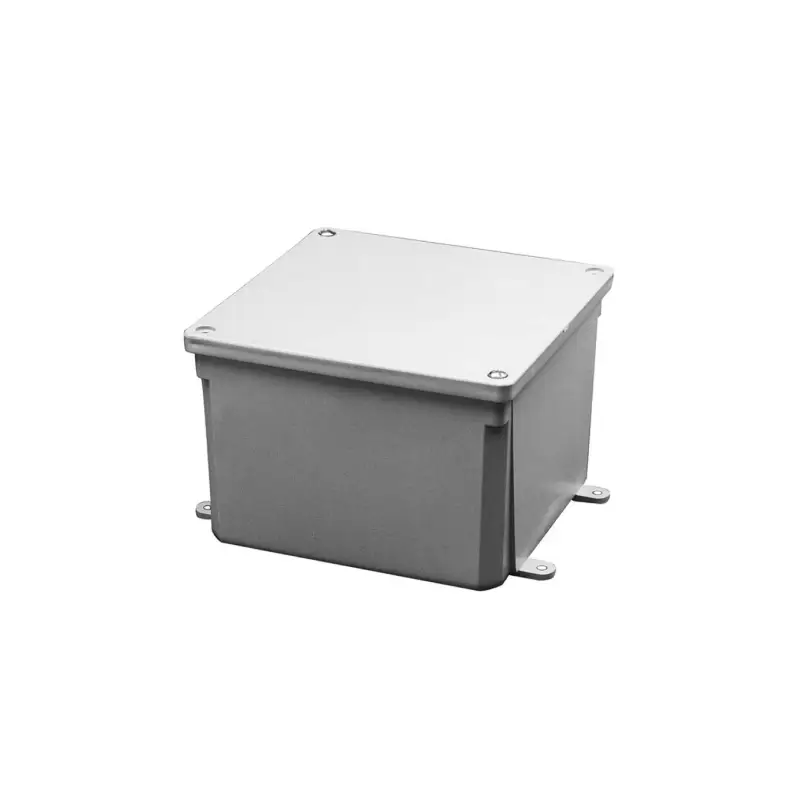
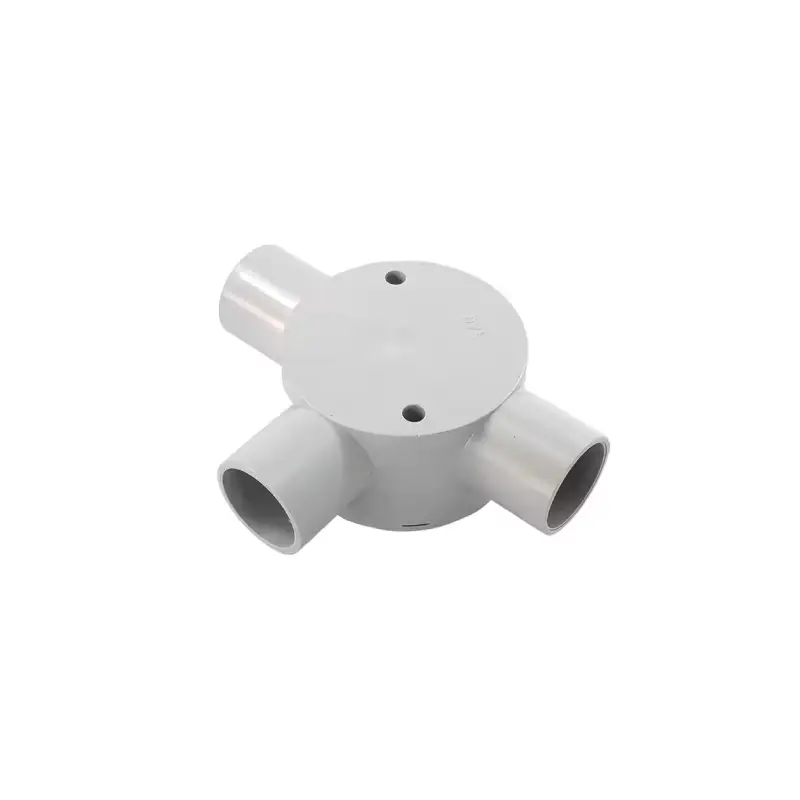
A plastic junction box is an electrical enclosure manufactured from various non-conductive polymer materials, such as PVC (polyvinyl chloride), polycarbonate, ABS (acrylonitrile butadiene styrene), or fiberglass. These boxes serve as protective housings for electrical wire connections, providing insulation and safeguarding the connections from environmental factors like moisture and dust, as well as accidental physical contact. Their non-metallic nature eliminates the need for grounding the box itself, simplifying certain aspects of installation.
Plastic junction boxes are widely used in residential and light commercial electrical systems, particularly for indoor applications with non-metallic sheathed cables (Romex). They are favored for their lightweight properties, ease of installation and modification (such as drilling knockouts), and inherent resistance to corrosion. While generally not as robust as metal boxes in terms of physical protection, they offer a cost-effective and safe solution for many wiring needs when used appropriately according to electrical codes and within their intended application range.
What Is Metal Junction Box
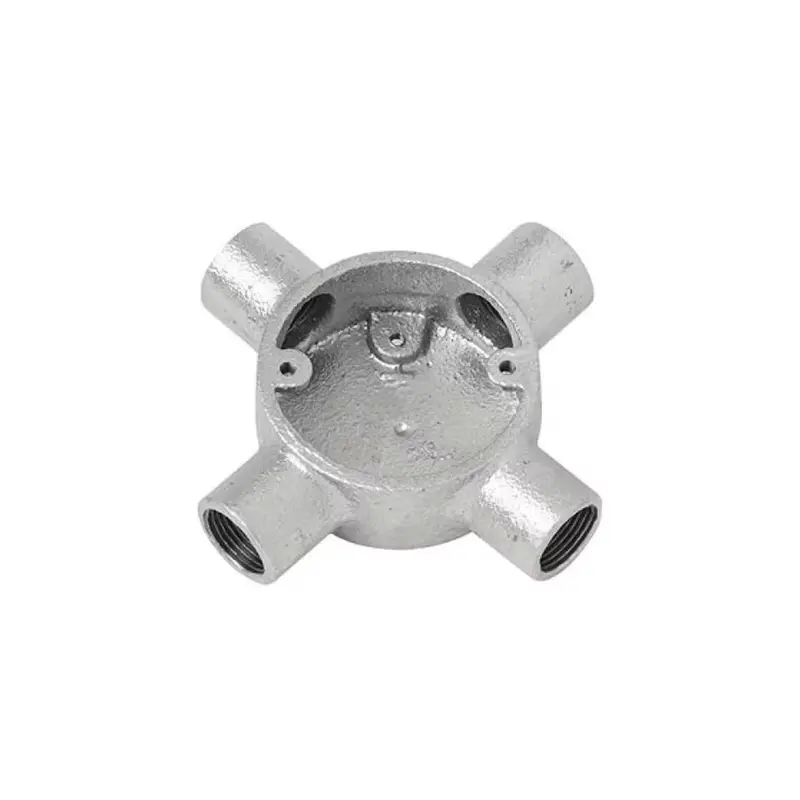
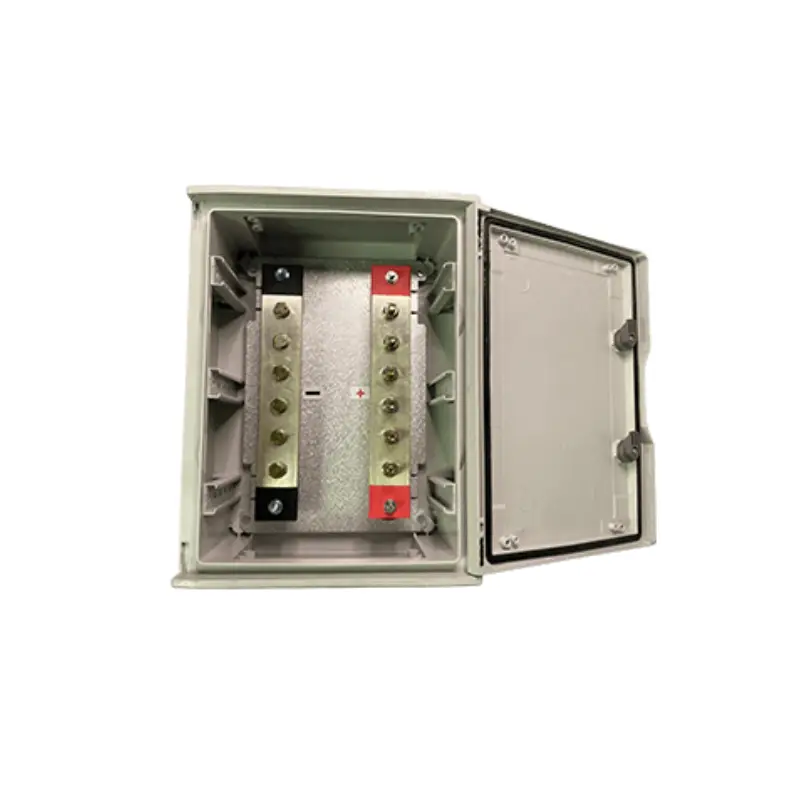
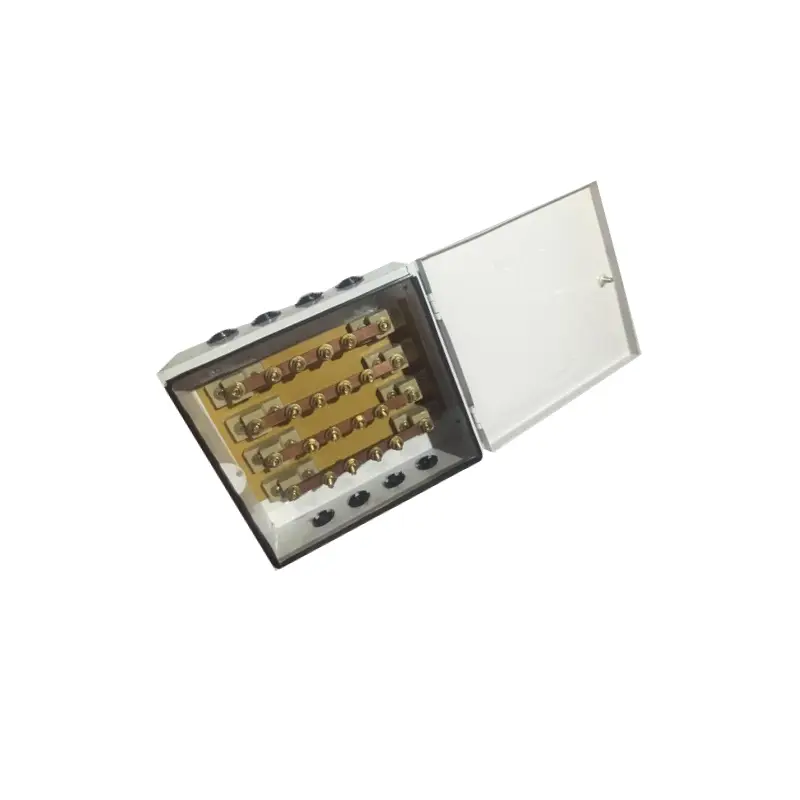
A metal junction box is an electrical enclosure constructed from conductive metals such as steel (often galvanized) or aluminum. Its primary function is to provide a safe and durable housing for electrical wire connections, protecting them from physical damage, environmental factors like moisture, and accidental contact, thereby preventing electrical hazards. Metal boxes are a fundamental component in ensuring the integrity and safety of electrical wiring systems in residential, commercial, and industrial settings.
Beyond protection, metal junction boxes offer additional benefits. Their robust construction provides enhanced durability and resistance to impact and extreme temperatures compared to non-metallic options. Importantly, metal’s conductive property allows the junction box to be part of the grounding system, providing a path for fault currents when properly installed and bonded. This grounding capability is a significant safety feature, especially when used with metal conduits or armored cables, contributing to a safer electrical installation overall.
Plastic vs Metal Junction Box

Choosing between plastic and metal junction boxes is a fundamental decision in electrical installations, influencing safety, durability, and cost-effectiveness. Both types serve the essential purpose of protecting wire connections, but their inherent properties make them suitable for different applications and environments. Understanding the key distinctions across various aspects is crucial for selecting the appropriate material to ensure a reliable and code-compliant electrical system tailored to specific needs and conditions.
Material Properties
Metal junction boxes, typically made of steel or aluminum, offer significant physical durability and impact resistance, making them ideal for environments where wiring might be subjected to mechanical stress. Their conductive nature allows them to be integrated into the grounding system, providing an essential safety feature for fault current paths. However, some metals can be susceptible to corrosion in damp or harsh environments unless properly treated or coated.
Plastic junction boxes, constructed from non-conductive polymers like PVC or polycarbonate, are lightweight and inherently resistant to corrosion from moisture and many chemicals. This makes them a preferred choice in damp locations or environments where metal might degrade over time. While generally less robust against severe physical impact compared to metal, high-quality plastic boxes can still offer sufficient durability for many residential and commercial applications.
Grounding and Safety
Metal junction boxes, when properly installed and bonded, become an integral part of the electrical grounding system. This provides a continuous low-resistance path for fault currents, helping to trip circuit breakers or blow fuses quickly in the event of an electrical fault, thus minimizing the risk of electric shock and equipment damage. Ensuring proper grounding of metal boxes is crucial for safety.
Plastic junction boxes, being non-conductive, do not inherently contribute to the grounding path. Grounding wires must still be run to and connected to any devices within the plastic box. This simplifies the grounding process for the box itself but necessitates careful attention to grounding the equipment and ensuring a continuous ground path throughout the circuit using grounding conductors.
Installation and Modification
Plastic junction boxes are generally lighter and easier to handle and install, often requiring less effort to mount and secure. They are also typically easier to modify, such as drilling or cutting holes for cable entries, using standard tools. This can save time and labor during installation.
Metal junction boxes, while more robust, can be heavier and may require specialized tools for cutting knockouts or making modifications. Installing and ensuring proper bonding and grounding of metal boxes can also involve additional steps and hardware. However, their rigidity can be advantageous in certain mounting scenarios and for providing superior physical protection to wiring.
Cost Considerations
Plastic junction boxes are generally less expensive to purchase than metal boxes of comparable size. This can lead to significant cost savings, especially in large residential or commercial projects with numerous junction boxes. The lower material cost, combined with potentially easier installation, can make plastic a more budget-friendly option for many applications.
Metal junction boxes, due to the cost of the raw materials and manufacturing processes, typically have a higher initial cost. However, their increased durability and potential longevity, especially in demanding environments, might offset the higher upfront expense over the long term. The specific requirements of the electrical code and the application will often dictate the acceptable or preferred material, regardless of initial cost.
Environmental Suitability
Plastic junction boxes excel in environments where moisture, chemicals, or corrosion are concerns. Their inherent resistance to these elements makes them a durable and safe choice for bathrooms, kitchens, outdoor areas (when usingweatherproof types), and some industrial settings.
Metal junction boxes, particularly aluminum and properly coated steel, can also be used in various environments. However, they may require additional protection or specific material choices (like stainless steel) for highly corrosive settings. In areas where physical protection and grounding continuity are paramount, such as industrial facilities or areas with exposed wiring, metal boxes are often the preferred and sometimes required option.
Here is the table showing you the main differences between junction box metal or plastic as follows:
| Feature | Plastic Junction Box | Metal Junction Box |
| Material Properties | Lightweight, corrosion-resistant, non-conductive | Durable, conductive, may corrode without protection |
| Grounding & Safety | Box itself doesn’t need grounding; ground wires required | Box can be part of grounding path; bonding is crucial |
| Installation | Lighter, easier to modify | Heavier, may require specialized tools for modification |
| Cost | Generally less expensive | Generally more expensive |
| Environmental Suitability | Good for damp, corrosive environments (specific types) | Good for physical protection; requires protection in harsh environments |
Should I Use Metal or Plastic Junction Box
Deciding between metal and plastic junction boxes involves weighing several factors specific to your electrical project and the environment where it will be installed. Both types offer distinct advantages and disadvantages regarding durability, conductivity, cost, and ease of use. Carefully assessing these aspects against the requirements of your wiring system will ensure you select the safest, most efficient, and code-compliant option for your needs.
The choice often comes down to balancing physical protection against corrosion resistance, and considering whether the grounding capabilities of metal are essential for your application. While plastic boxes offer simplicity in grounding the enclosure itself, metal provides a robust pathway for fault currents when properly installed. Understanding these trade-offs will guide you toward the optimal selection for long-term reliability and safety.
Here are some consideration factors that help you deternine metal or plastic junction box:
- Consider the Environment: If the junction box will be located in a damp or corrosive environment, such as a bathroom, kitchen, or outdoors, plastic boxes offer superior resistance to rust and degradation. Their non-metallic composition ensures they won’t corrode over time, maintaining the integrity of the enclosure and protecting the internal wiring from moisture-related issues, thus extending the lifespan of the electrical connections in challenging conditions.
- Evaluate Physical Protection Needs: For areas where the junction box might be subjected to physical impact or stress, such as industrial settings or exposed locations, metal boxes provide greater durability and protection. Their robust construction can withstand more demanding conditions, safeguarding the wiring and connections from potential damage that could compromise the electrical system’s safety and functionality, ensuring long-term reliability in harsher environments.
- Assess Grounding Requirements: If your wiring system requires the junction box to be part of the grounding path, especially when using metal conduits or armored cables, metal boxes are the necessary choice. Their conductive nature allows for proper bonding and grounding, providing a crucial safety feature by creating a low-resistance path for fault currents to quickly trip protective devices, minimizing the risk of electrical shock and equipment damage.
- Factor in Cost and Ease of Installation: Plastic junction boxes are generally more cost-effective upfront and often easier to work with, especially for drilling or modifying for cable entries. Their lighter weight can also simplify installation in some scenarios, making them a practical choice for residential and light commercial applications where budget and ease of modification are key considerations.
- Review Electrical Codes: Local electrical codes often specify when metal or non-metallic junction boxes are required or permitted in certain applications. Always consult the relevant codes for your area to ensure compliance and safety. Some jurisdictions may mandate metal boxes in specific commercial or industrial settings or for certain wiring methods, overriding personal preference or cost considerations.
Conclusion
In conclusion, the choice between plastic and metal junction boxes hinges on the specific requirements of your electrical project. Metal boxes offer superior durability and grounding capabilities, often mandated in certain applications. Plastic boxes provide excellent corrosion resistance and are typically more cost-effective and easier to modify.
Understanding these fundamental differences in conductivity, strength, and environmental suitability is crucial for ensuring a safe and compliant electrical installation. Carefully consider the environment, the wiring methods used, and the long-term needs of your system when making your selection.
Looking for a reliable source of both plastic and metal junction boxes? Linkwell Electronics offers a comprehensive range of high-quality enclosures at wholesale prices. Contact us today to explore our diverse catalog and find the ideal solutions for your electrical needs. Choose Linkwell for dependable and cost-effective electrical components.

